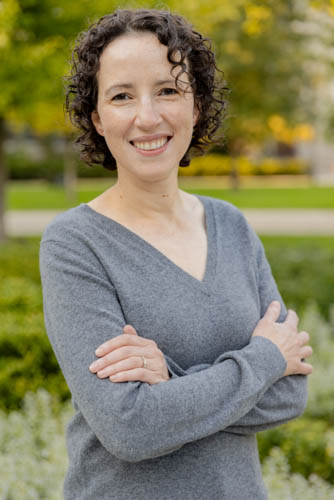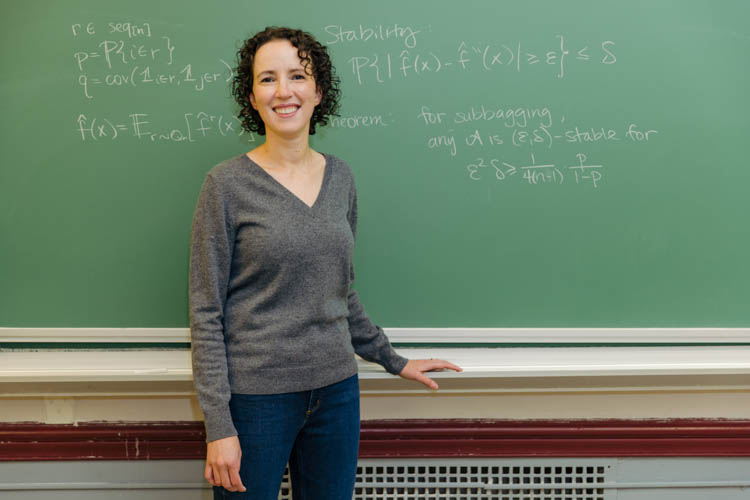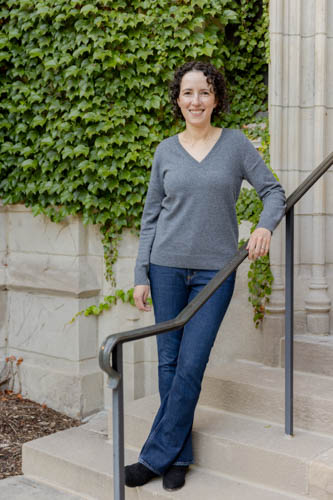About Rina's Work
Rina Foygel Barber is a statistician studying the theoretical foundations of formal inference and prediction models and designing new methods for working with massive and multidimensional datasets. Barber’s research focuses on reducing false discovery rates and cross-validating machine learning prediction models. Her work improves the quality of statistical analysis while also uncovering the limitations of statistical methodologies.
Barber and a collaborator created the knockoff filter framework to address the increased likelihood of false discoveries when machine learning is applied to high-dimensional datasets, which have a large number of variables relative to the number of observations or data points (e.g., in health data, many different health variables—age, height, weight, blood pressure, etc.—can be collected for each individual). In this method, fake variables (the knockoffs) are constructed that mimic the actual variables and are used to test how related different variables are to the observed response in a statistical model. Barber has continued to refine and enhance the knockoff method, and it is now widely used by researchers working with high-dimensional data and large-scale inference problems. In another line of work, Barber developed methodology in the field of conformal prediction, which quantifies predictive uncertainty in machine learning algorithms. Quantifying the potential variability in a machine learning algorithm’s outputs (in effect, the possibility that the “predictions” are incorrect) is important for determining if an output should be trusted and acted upon. Jackknife resampling, otherwise known as “leave-one-out” validation, cross-validates by removing one data point from the training data. Barber and collaborators overcame some constraints of traditional Jackknife with Jackknife+, which allows for validation regardless of the distribution of data points in the test and training data and accounts for possible uncertainty in the predictive model.
Barber’s findings are applicable to scientific research in a range of fields, such as healthcare, genomics, climate science, astronomical imaging, and the social sciences. Barber’s innovative work at the intersection of statistics, machine learning, and data science is critical to overcoming the challenges presented by use of high-dimensional datasets.
Biography
Rina Foygel Barber received an ScB (2005) from Brown University and an MS (2009) and a PhD (2012) from the University of Chicago. She was a National Science Foundation Postdoctoral Fellow (2012–2013) at Stanford University prior to joining the Department of Statistics at the University of Chicago, where she is currently a Louis Block Professor. Barber has published in leading journals such as Annals of Statistics, Journal of the American Statistical Association, Journal of the Royal Statistical Society, Advances in Neural Information Processing Systems, and Information and Inference: A Journal of the IMA, among others.
Published on October 4, 2023












